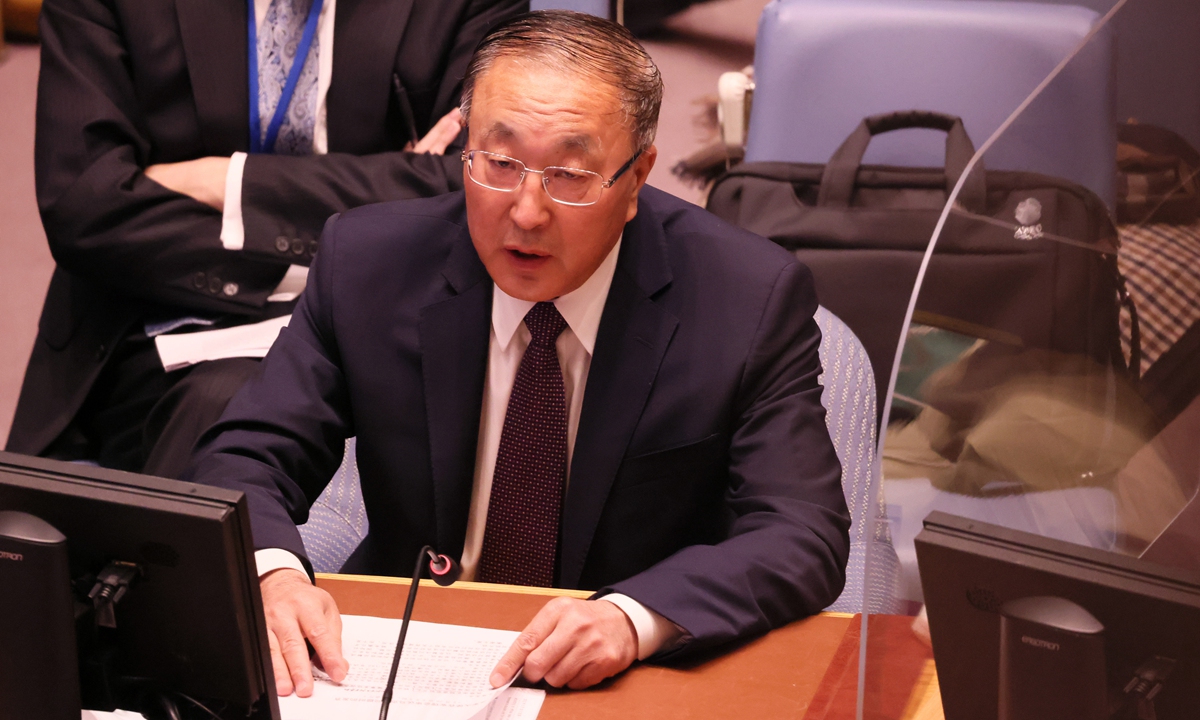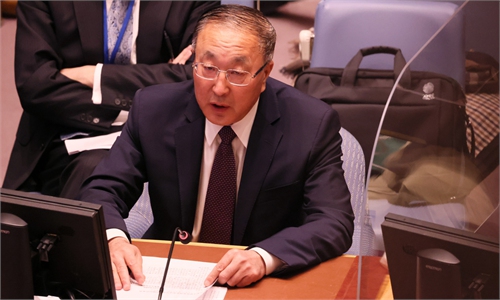China calls for end of geographical confrontation, technological decoupling in UN technology meeting

Zhang Jun, China's Permanent Representative to the United Nations (UN) Photo: CFP
China urged governments to stop creating division around the globe, to abandon technological decoupling and to refrain from destructive practices affecting the stability in global supply chain and economic recovery at the United Nations Security Council technology and security briefing on Monday.
It is worrisome that for some time now, some governments have politicized issues of scientific and technological nature, generalized the concept of national security, abused state power, and wantonly intensified their suppression of high-tech companies of other countries, said Zhang Jun, China's permanent representative to the UN.
Zhang said that these countries imposed technology blockades on others and obstructed the economic, trade, scientific and technological cooperation among other countries in order to maintain the monopoly in science and technology, an attempt that is clearly doomed to fail.
UN Undersecretary-General for Political Affairs Rosemary DiCarlo pointed out that whereas digital technologies offer "boundless opportunities" for the UN to detect crises, position humanitarian stocks and design data-driven peacebuilding programs, they can also affect conflict dynamics for the worse.
Zhang urged the counties concerned to stop groundless attacks and restrictions on high-tech companies of other countries.
The Chinese ambassador also noted that technological developments can be a source of risk, and that the international community should see the UN as a main channel for active dialogue, exchanges and cooperation and jointly manage the risks by formulating and improving universally accepted rules and norms.
"It is necessary to curb the abuse of information technology, cyber-surveillance, cyber-attacks, and of the arms race in cyberspace. It is crucial to prevent terrorists from using the internet for recruitment, financing, or organizing terrorist attacks. It's important to prevent the internet from becoming a hotbed of hate speech, racism, pornography and violence," Zhang said.
The ambassador also mentioned the necessity of supporting developing countries' R&D capacity and of narrowing the digital divide to leapfrog the development gap, pointing out that developing countries must be supported in the usage of the latest technology products and big data to improve social governance, and to effectively prevent and crack down on crimes.
"China welcomes the continued, inclusive dialogue under the framework of the General Assembly to enhance mutual trust and ensure that developing countries can fully enjoy their right to peaceful use of science and technology," said Zhang.

